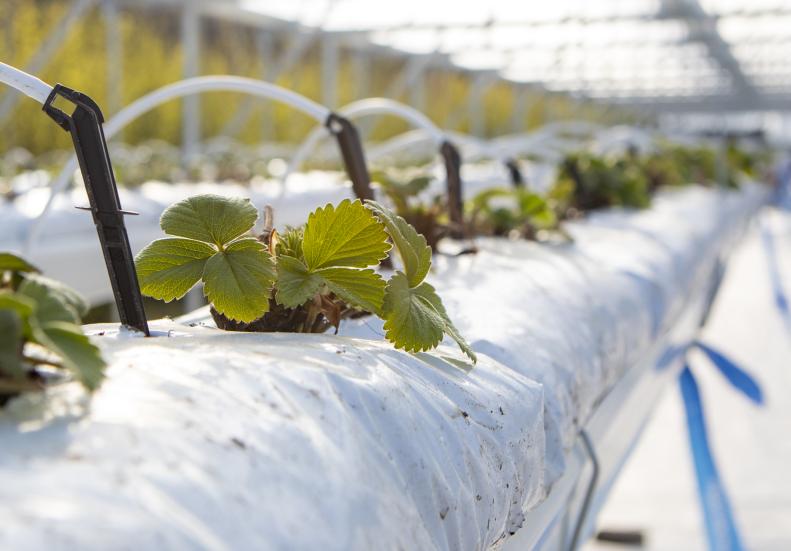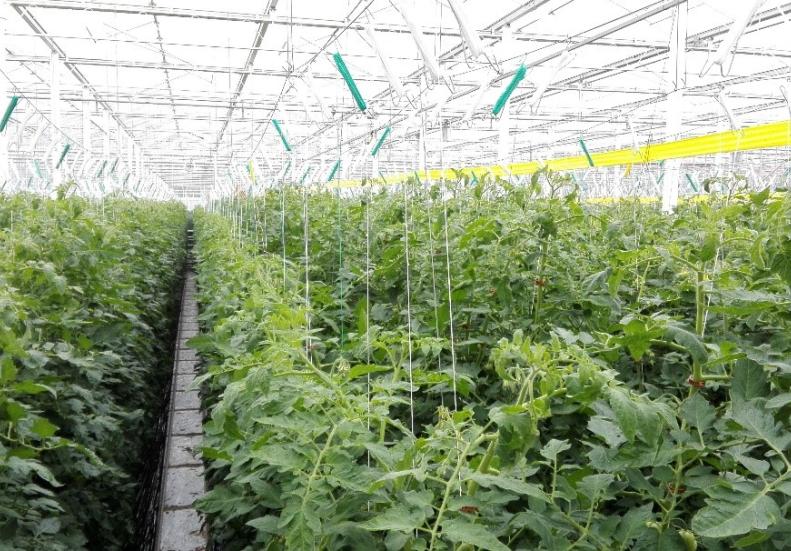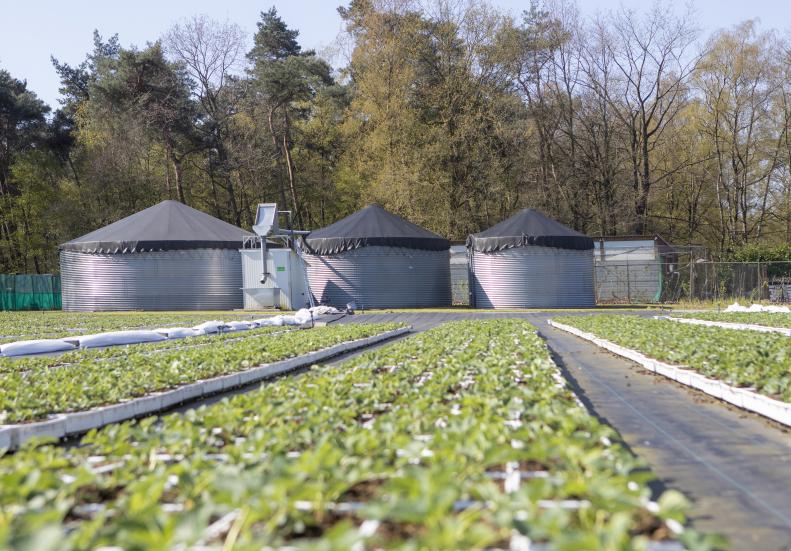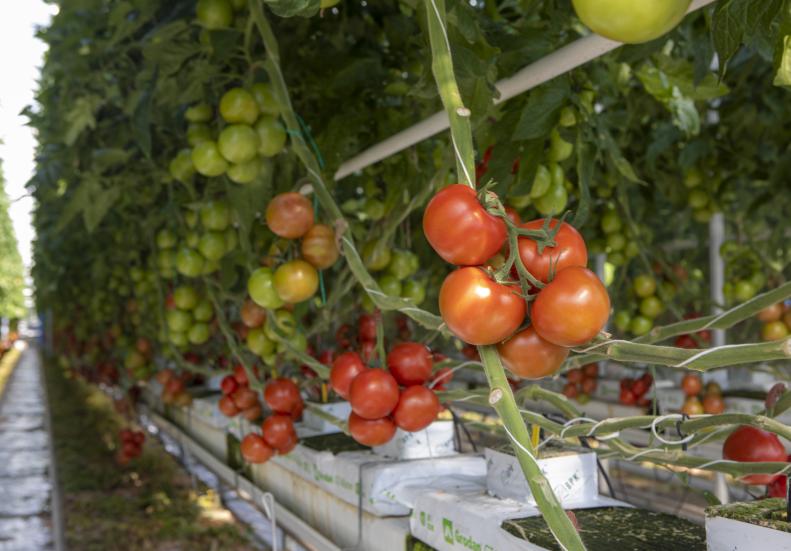NL / EN
At the Hoogstraten Research Centre, hands-on research is conducted in the crops of strawberry, sweet pepper and tomato. The research covers all aspects of the various crops and is divided into several themes:
- Variety screening
New selections and varieties from breeding companies from different countries are tested in our cultivation systems and climatic conditions. For this research, Research Centre Hoogstraten has large departments where each variety can be tested on a sufficiently large scale. Production possibilities and quality characteristics are examined up to assignment with optimisation in certain cultivation systems. Finally, the selected varieties are tried out and followed up with growers. In this way, the aim is to make it easier for new varieties to find their way into practice.


- Integrated Pest Management (IPM)
Research is being conducted at Research Centre Hoogstraten into solutions and control options for both new and known pests. The focus is on biological, physical and chemical control, but the research also extends to cultivation techniques, resilient cultivation, microbial attractants and repellents, pheromone confusion, etc. The research focuses on making cultivation more sustainable by, for example, looking for methods to reduce the use of crop protection products. - Climate- and energymanagement
The cultivation of strawberries and fruiting vegetables are highly energy-intensive crops. To ensure the profitability of companies in the future, it is necessary to study new, energy-saving methods and techniques. The innovations needed to do this often require high investments. Research Centre Hoogstraten considers it important to play a pioneering role in this and always tries to keep the infrastructure modern and progressive. The new greenhouses are designed in such a way that new techniques can be implemented quickly in the future.
- Cultivation techniques
Trials within the cultivation techniques topic enable the further optimisation of cropping with a particular variety. The right stem density, light penetration or rootstock can drastically change plant performance. Good plant quality is essential for successful production. Weather conditions can also prompt certain improving interventions. For example, cultivation measures to achieve a balanced plant balance can be interesting for the further development of the crop to achieve the best possible yield. - Lightning and innovative cultivation systems
New cultivation systems and technologies are being studied to further optimise specialised strawberry and fruiting vegetable cultivation. Trials reveal whether such technologies can add value in current cultivation. A major component within this theme is lighted cultivation research. Issues such as assimilation lighting, multilayer cultivation,... are being studied.


- Sustainable watermanagement
In the water theme, the focus is on the optimal use of this precious commodity, including collection, recirculation, disinfection and residual values of nutrients and plant protection products are monitored here. Support for new legislation is provided as is the case with infiltration, for example. - Soil, substrate and fertilisation
Within the research concerning fertilisation, we try to achieve ideal plant development or supplement or replace common fertilisation methods on the tray field with more sustainable methods. In addition, alternative substrates are also tested with matched watering strategies within this research topic.
- Waste management and circular economy
Within this topic, new, sustainable marketing methods are being sought for harvested plants and substrate removed during crop rotation. The bioeconomy is often looked at for this purpose. In addition, trials are also carried out in which cultivation is done on substrates from the circular economy. - Mechanisation, automation and Smart Farming
In strawberry and fruiting vegetable cultivation, technological developments do not stand still. Within this theme, new technologies that take over some of the human work are being tested. This could involve harvest prognosis, pest monitoring, applications within robotics and drones, ...

